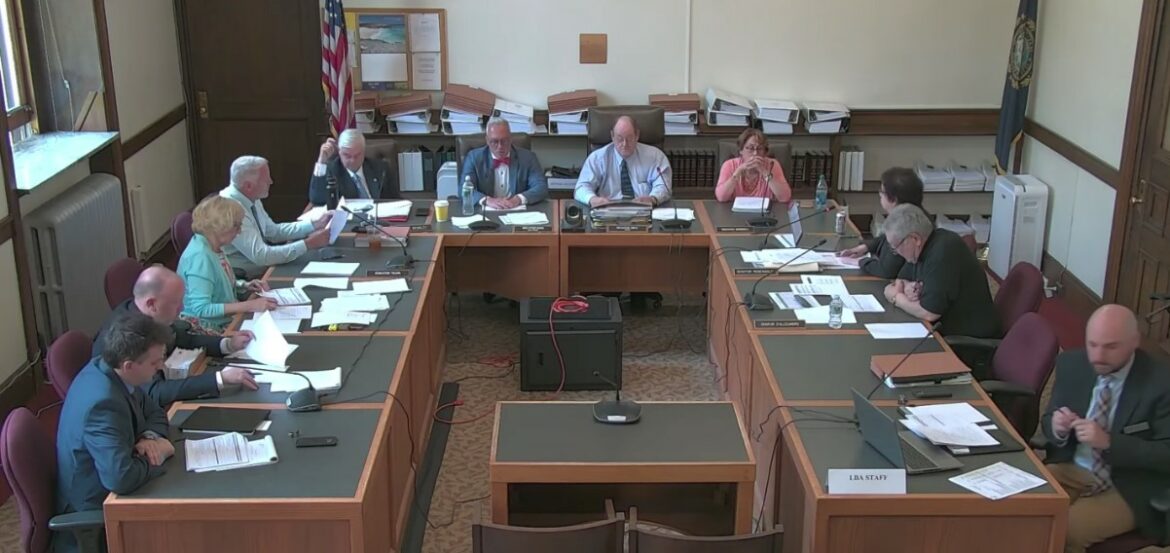By GARRY RAYNO, InDepthNH.org
CONCORD — The Senate Finance Committee gave its approval to an estimated $15 billion two-year budget plan Tuesday that members will vote on June 8.
The Senate budget proposal which is expected to have a final Legislative Budget Assistant and his staff account for the Senate’s actions, is about $750,000 less than the House’s $15.76 billion plan, according to Senate President Jeb Bradley, R-Wolfeboro.
At the end of the committee’s work Tuesday, Bradley said the budget plan accomplishes three things: it meets the needs of the people of New Hampshire, especially the most vulnerable, it maintains the state’s competitive advantage, and it protects the state’s taxpayers.
It does this while approving a 12 percent pay raise for state employees over the two years, increases Medicaid reimbursements and child-care services and contains a new education funding formula and extends the Medicaid expansion program for seven years.
“We have allocated resources to support key areas such as education, our economy, health care, infrastructure, and public safety, all while delivering more financial support to our communities,” said Bradley. “Further, the Senate Finance Committee accomplished all this while reducing spending by three-quarters of a billion dollars less than the budget (that) was brought to us.”
The committee voted unanimously for House Bill 1, which contains the budget numbers, but the two Democrats on the seven-member committee voted against House Bill 2, which contains the changes in law and policies that correspond to the numbers.
Sen. Cindy Rosenwald, D-Nashua, said there are many things she likes in the budget including the increase in the Medicaid reimbursement rates.
“They are a foundational building block to the entire health care system, which has been crumbling” she said. “It’s hard to get into a hospital and it’s hard to get out.”
She noted the additional money for child care will allow young women to return to the workforce, and the pay raise for state workers will help the state as will additional education funds.
But she did not like what she called the anti-immigration provision to help the border patrol, nor the one-year speed up for phasing out the interest and dividends tax, which she claimed is money they will need in two years.
The $1.4 million northern border alliance was in Gov. Chris Sununu’s proposed budget but the House removed it from its plan.
On Tuesday Bradley said the money will hopefully prevent fentanyl from coming into the state adding it is a raging surge across the country.
Rosenwald said she would have liked to see more money go into affordable housing and for the state to keep its promise to firefighters and law enforcement for retirement benefits.
“We have another week to work together to try to find a solution to consensus on the budget that the House may like,” Rosenwald said.
The Senate budget increases education funding by $170 million over the biennium, bringing the total state aid including the Statewide Education Property Tax to $2.09 billion.
The Senate undid the House change to the amount of tax dollars that flow into the Education Trust Fund and restored the educational items the House removed from funding through the trust fund.
Money for the University System of New Hampshire, which was initially funded at $195 million by the Senate, was increased by $6 million over the biennium to reduce in-state tuition at Plymouth University and Keene State College.
The Senate retained the same amount of money for housing as the House, but changed how it would be distributed, adding a new program the Senate approved and using some of the money for a tax credit for restoring historic buildings.
The committee rejected a House approved plan to automatically enroll students whose families qualify for Temporary Aid for Needy Families (welfare) program in the free and reduced lunch program in the state’s public schools and also eliminated a provision raising the poverty threshold to include more children in the program.
Instead the committee approved a study commission to review the potential costs of the two actions.
The committee also rejected a proposed increase in the settlement cap for those abused as children in the Sununu Youth Services Center at the suggestion of the fund administrator, former state Supreme Court Chief Justice John Broderick.
A $100 million fund was established to pay claims of the 800 to 1,300 victims of abuse while at the center under the state’s control.
The committee agreed to include emergency powers language meant to rein in the governor’s powers and give the legislature more of a say, but instead of the 21-day emergency declaration period, the Senate has a 28-day period.
Bradley said the provision is very important to the House.
The committee will meet again this week with the Legislative Budget Assistant to go over the final figures for the Senate’s proposed budget for the next biennium.
If the Senate proposal passes, the House will have to agree to the changes the Senate made, or object to the changes and ask to form a conference committee to work out their differences, or object to the changes and not ask for a conference committee, which would kill the bill.
That is not likely to happen with a June 30 deadline for a new budget to be approved and to go into effect July 1.
Garry Rayno may be reached at garry.rayno@yahoo.com.





